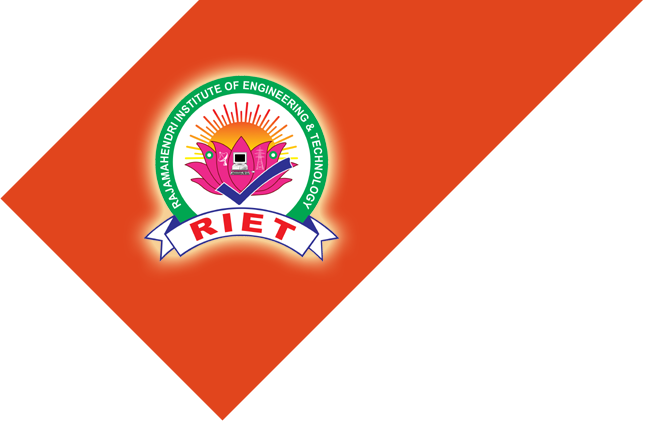COMPUTER SCIENCE & ENGINEERING
About Department
- Computer Science and Engineering Department started in the year 2008 with an intake of 60 and the department at present has an intake of 120 annually.
- The state of art facilities and well qualified faculty are taking care of all round development of the students and make them industry as well as job ready.
- The Department has well- equipped laboratories. It focuses on practical applications in the field of recent trends in Computer Science.
- In addition to quality teaching, students are exposed to certification courses and workshops along with personality development programs. The gradual increase in the number of participants and competitors for various programs and the growing number of placements reflects the impact of these programs.
- The department is strengthened with a total of 17 faculties out of 1 is pursuing Ph.D. and 16 are holding M.Tech. degree.
Vision
To create competent professionals to become part of the industry and research organizations at the national and international levels.
Mission
The Department of Computer Science and Engineering is committed
- To provide a strong theoretical and practical background across the computer science discipline with an emphasis on software development.
- To impart high quality experiential learning to get expertise in modern software tools and to cater to the real time requirements of the industry.
- To Train team work and lifelong learning among students with a sense of social responsibilities.
- To inculcate professional behaviour, strong ethical values, innovative research capabilities and leadership abilities.
OBJECTIVES
The department has currently an intake of 120 students. It has centralized computer center and well-equipped air-conditioned laboratories with state-of-the art computing facilities, equipped with more than 200 latest Systems along with updated versions of latest software and hardware. The department also has 20 Mbps Leased Line Internet connectivity for the benefit of the students..
GOALS
- Quality Instruction: To assure consistently high-quality instruction in all modes of delivery.
- Student Success: To work collaboratively with other areas of the colleges to encourage students to achieve their educational goals and succeed in work and/or continued education.
- Program and Curricular: To develop, market and maintain quality programs that are responsive to the needs of our service area.
- Technology: To employ appropriate technologies effectively to enhance instruction and student learning.
- Professional Development: To foster continuing education and professional development for faculty and staff.
PEO's , PSO's & PO's
Programme Educational Objectives (PEO's)
- PEO 1: To provide core theoretical and practical knowledge in the domain of Computer Science and Engineering for leading successful career in industries, pursuing higher studies or entrepreneurial endeavours.
- PEO 2: To develop the ability to critically think, analyze and make decisions for offering techno-commercially feasible and socially acceptable solutions to real life problems in the areas of computing.
- PEO 3: To prepare graduates who will thrive to pursue life-long learning and contribute to society as an ethical and responsible citizen.
Program Specific Outcomes (PSO's)
- PSO 1: Able to identify suitable data structures and algorithms to design, develop and evaluate effective solutions for real-life and research problems.
- PSO 2: To gain critical understanding of hardware and software tools catering to the contemporary needs of IT industry.
Programme Outcomes (PO's)
- PO1: Engineering Knowledge: Apply knowledge of mathematics, science, engineering fundamentals and an engineering specialization to the solution of complex Computer Science and engineering problems.
- PO2: Problem Analysis: Identify, formulate, review research literature and analyze complex engineering problems in Computer Science and Engineering reaching substantiated conclusions using first principles of mathematics, natural sciences and engineering sciences.
- PO3: Design / Development of Solutions: Design solutions for complex engineering problems and design system components or processes of Computer Science and Engineering that meet the specified needs with appropriate consideration for public health and safety, cultural, societal and environmental considerations
- PO4: Conduct Investigations of Complex Problems: Use research-based knowledge and research methods including design of experiments in Computer Science and Engineering, analysis and interpretation of data, and synthesis of the information to provide valid conclusions.
- PO5: Modern Tool Usage: Create, select and apply appropriate techniques, resources, and modern engineering and IT tools including prediction and modelling to complex engineering activities related to Computer Science and Engineering with an understanding of the limitations.
- PO6: The Engineer and Society : Apply reasoning informed by the contextual knowledge to assess societal, health, safety, legal and cultural issues and the consequent responsibilities relevant to the professional engineering practice in Computer Science and Engineering.
- PO7: Environment and Sustainability :Understand the impact of the professional engineering solutions of Computer Science and Engineering in societal and environmental contexts, and demonstrate the knowledge of, and need for sustainable development.
- PO8: Communication: Communicate effectively on complex engineering activities with the engineering community and with society at large, such as, being able to comprehend and write effective report and design documentation, make effective presentations, and give and receive clear instructions.
- PO9: Individual and Team Work : Function effectively as an individual and as a member or leader to diverse teams, and in multidisciplinary settings.
- PO10: Ethics : Apply ethical principles and commit to professional ethics and responsibilities and norms of the engineering practice.
- PO11: Project Management and Finance: Demonstrate knowledge and understanding of the engineering and management principles and apply these to one’s own work, as a member and leader in a team, to manage projects and in multidisciplinary environments.
- PO12: Life-Long Learning : Recognize the need for, and have the preparation and ability to engage in independent and life-long learning in the broadest context of technological change.




